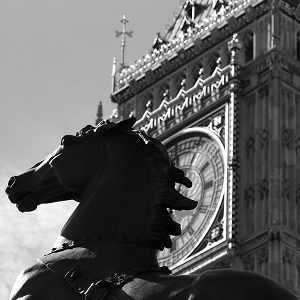Not so EVEL?
In June the Fabian Society published analysis of the implications of EVEL for the Labour Party, in our report The Mountain To Climb. In the paper I wrote: Labour is now so weak in Scotland, that ‘English Votes for English Laws’...
In June the Fabian Society published analysis of the implications of EVEL for the Labour Party, in our report The Mountain To Climb. In the paper I wrote:
Labour is now so weak in Scotland, that ‘English Votes for English Laws’ (EVEL) is no longer something the party needs to fear. In another extraordinary twist, Labour is now stronger in England than it is in the UK as a whole, in terms of its share of seats (39 per cent of English constituencies) or share of votes (32 per cent). This means that (on paper) it is now easier for Labour to achieve a majority in England and control English legislation than to form a majority UK government. We estimate that Labour would enter the 2020 election defending a notional 195 seats out of 544 English seats (again, the calculations are based on the 2013 boundary review, but scaled to 650 seats). A majority of one would therefore require Labour to gain 78 seats in England, which could be achieved on a swing of 8.9 percentage points in the relevant marginal constituencies. This compares to the 9.5 point swing needed to secure a UK majority.
But the picture gets a lot more complicated when it comes to possible permutations in a hung parliament:
…to win a majority in England, under EVEL an anti-Conservative alliance would need to gain 71 seats. For Labour to win these seats alone, without any gains by the Liberal Democrats, it would require a swing in the key English Lab/Con marginals of 7.5 percentage points. The task would be easier if the Lib Dems and Labour were each able to make gains in England, in seats where they face the Conservatives. If both parties achieved a swing of around 6.5 points this would be sufficient for them to achieve a combined majority in England (Labour would gain around 55 seats; and the Lib Dems 16). This suggests that it is strongly in Labour’s interests for the Lib Dems to stage a recovery in those parts of England where Labour is not competitive, such as the South West.
Looking at these numbers, it is clear that the task of eliminating the Conservative majority could be relatively achievable, even after the boundary changes; while the task of winning a UK Labour majority will be very difficult. This means there is a good chance that no party will win a UK majority in 2020: Labour will need to give careful thought to the many possible scenarios arising from a future hung parliament.
EVEL hugely complicates the picture, because it creates the possibility of an anti-Conservative alliance being able to secure a UK majority but not an English majority. Indeed it is possible to imagine an outcome where neither large party is capable of securing majorities for both England and for the UK.
The report concludes with some thoughts on political strategy for Labour, including:
- In the debate on English devolution Labour can ignore party interest. It should seek reforms that reflect the national interest of England and of the UK.
- A hung parliament in 2020 could create very undesirable political and constitutional problems. This makes winning a Labour majority even more important; however an inconclusive outcome is likely and the party should start to consider the implications.

